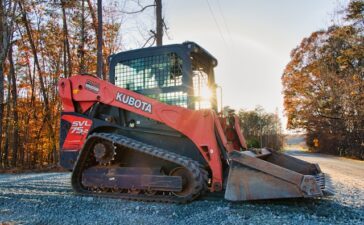A well-groomed beard is a work of art in the realm of barbering, where style and technique converge. You recognise the value of having the appropriate instruments available to you as a modern barber. Every tool in your toolbox from fine clippers to opulent shaving creams is essential to getting that flawless trim or clean shave.
This thorough tutorial will examine the important tools and supplies that any qualified barber should keep on hand. We provide helpful suggestions and expert guidance for everyone, whether you are just beginning your grooming adventure or looking to enhance your current tools.

Now that you have your comb, let’s explore the world of barber supplies.
The Crucial Barber Shop Equipment
Having the appropriate instruments is essential for barbering in order to provide top-notch services and achieve flawless outcomes. Here are a few important barber supplies that any contemporary barber should have in their toolbox.
- Clippers: An excellent set of clippers is a need for any barber. To manage various hair kinds and textures, look for ones with changeable blades, many comb attachments, and a strong construction.
- Trimmers: Trimmers are ideal for fine-tuning tasks and producing crisp edges around haircuts for beards. For simplicity of usage, choose trimmers with razor-sharp blades and ergonomic designs.
- Shears: For accurate scissor-over-comb techniques or clipping longer hair sections, high-quality shears are essential. Invest in high-quality shears that deliver outstanding cutting performance and are composed of sturdy materials.
- Straight Razor: A straight razor is a necessary instrument for those classic shaves or elaborate facial hair patterns. To ensure safety while shaving up close, consider one with replaceable blades and a comfortable grip.
- Combs: Multipurpose combs are crucial for detangling hair as well as serving as guides for cutting different lengths and kinds of hair. To reduce frizz, look for combs constructed from anti-static materials.
- Cape & Apron: Don’t overlook capes and aprons if you want to keep your shop clean while offering services! These shield your clothing from stray hairs or chemicals used during treatments, as well as the clothing of your clients.
Always keep in mind that investing in high-quality instruments may take an initial outlay of funds but will ultimately pay off for your business in the long run through durability, precise cuts, and happy clients.
Practical Barber Equipment
Having the proper equipment and supplies is crucial for successfully operating a barbershop. They not only assist you in giving your customers top-notch services, but they also help to foster a polished and effective workplace.
A good set of scissors is among the most essential tools for barbers. You can make precise cuts and clean lines using these precision cutting tools. Purchasing ergonomic scissors can also prevent hand tiredness throughout extended periods of work.
Clippers are yet another essential component of every barber’s toolset. Clippers are crucial for effortlessly creating various hair lengths and styles, whether you choose corded or cordless types. For the most versatility, look for products with adjustable blade sizes and various speed settings.
For detailing facial hair and producing clean lines around the hairline and beard, a high-quality trimmer is also required. For different grooming activities, such as shaping eyebrows or eliminating unwelcome nose and ear hair, trimmers with several attachments can be utilised.
Any barbershop should make maintaining hygiene standards a major concern, which is why disinfectant sprays or wipes are essential items to have on hand. Sanitising your tools on a regular basis helps to extend their lives in addition to protecting your clients from diseases.
Additionally, purchasing cosy barber chairs makes sure that both you and your customers are at ease while they are there. Look for chairs with tilting mechanics, changeable height settings, lumbar support, and long-lasting upholstery materials.
Without styling aids like pomades, gels, waxes, or hairspray, no barbershop would be complete. These products support a variety of hairstyles and offer grip that lasts all day.
Invest in tool belts or aprons made especially for barbers to keep everything organised and conveniently within reach while working on clients’ haircuts or beard trims.
Don’t forget about towels as an added bonus! Towels must be plentiful, clean, and soft to ensure that your guests are comfortable and well-cared for.
How to Pick the Correct Barber Supply?
There are a few important considerations to take into account when selecting the appropriate barber supplies. You need to consider the exact services your barbershop provides first and foremost. Are conventional haircuts and shaves your main priorities? Or do you also provide more contemporary grooming methods and styles?
It’s crucial to explore the various tools and goods on the market once you have a firm grasp of the services you offer. Choose well-known companies with a track record of excellence. Read client testimonials and get referrals from other skilled barbers.

Think about each product’s dependability and durability as well. You want equipment that won’t break or lose its effectiveness under daily use. This is especially important for high-use tools like straight razors, clippers, and shears.
Consider quality as well as your financial limitations. While it could be tempting to spend a lot of money on top-of-the-line equipment, make sure it fits within your budget. Keep in mind that superior products aren’t always more expensive; sometimes less expensive solutions might produce just as good outcomes.
Remember to consider ergonomics. In order to avoid unnecessary strain or exhaustion while working long hours as a barber, use tools that feel comfortable in your hands.
You’ll be able to choose barber supplies that meet your unique needs and position yourself for success in providing exceptional haircuts and grooming experiences for your clients by taking into account these factors: service offerings, quality/reputation, durability/reliability, budget restrictions, and ergonomics.





